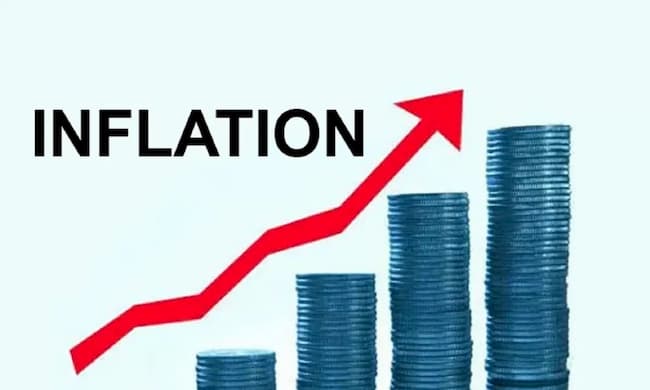Experts across different sectors of the economy have attributed the rising inflation to low productivity in critical sectors of the economy.
They called on the government to stimulate growth in the agriculture and manufacturing sectors in order to reflate the economy.
Commenting on the inflation figures published by the National Bureau of Statistics (NBS) for March which showed the inflation had increased to 18.17 percent from 17.33 percent in February, they said underlining causes of inflation must be addressed.
The Manufacturers Association of Nigeria (MAN), Nigerian Association of Chambers of Commerce, Industry, Mines, and Agriculture (NACCIMA) and Financial derivatives Company (FDC), called for the proper management of the economy before the situation gets out of control.
Nigeria’s headline inflation increased sharply to 18.17 percent in March for the 19th consecutive month and the highest level since January 2017.
The year-on-year food inflation increased sharply by 1.16 percent to 22.95 percent while the monthly subindex inched up by 0.01 percent to 1.90 percent driven by increase in prices of bread and cereals, potatoes, yam and other tubers, meat, vegetable, fish, oils and fats and fruits.
The annual core sub-index increased by 0.29 percent to 12.67 percent in March but on a monthly basis, it fell by 0.15 percent to 1.06 percent.
Ensure Price Stability, Diversify Revenue Sources – MAN
The Director General of MAN, Segun Ajayi-Kadiri, noted the 18.17 percent inflation rate was not healthy for the well-being Nigerians and the growth of the economy.
He added that the current inflationary condition in Nigeria had adversely affected the profitability of the manufacturing sector and a major contributor to the low-export penetration manufactured goods.
READ ALSO: Nigeria Ranks As Africa’s Highest Importer – WTO
The DG called on the government to take deliberate measures to ensure price stability and diversify its revenue before the situation becomes deplorable.
According to him, actions that will stimulate growth in agricultural output and support the manufacturing sector to ensure improved output are needed.
Ajayi-Kadiri said, “Action a CBN sustainable plan to improve the external reserves to a defensive capacity that will raise the months of imports of Nigeria to a dependable level. This can be achieved by deliberately and sincerely partnering with the productive sector to grow non-oil export.
“The Federal Ministry of Finance (FMF) and CBN should work more closely when designing policies that affect the real sector of the economy. This is to prevent a situation where policies are working at cross purposes.
“For instance, while CBN was creating funding windows at single digit interest rate to encourage production, Government increased VAT from 5 percent to 7.5 percent. Similarly, Government increased minimum wage and also allowed increase in electricity tariff, and so on.”
Inflation To Rise Further On Insecurity, Planting Season, FDC Predicts
Economic analysts at FDC said the inflation figures was an indication that the impact of government interventions were falling far short of expectations in spurring output.
According to them, the money supply growth (1.41 percent) is compounding the demand pull effect on the general price level.
They also noted that total agric intervention was N1.487trillion (0.78 percent of GDP), saying the funding was inadequate and would have a very limited multiplier effect on aggregate output.
READ ALSO: States Revenue Fell By N20bn In 2020 -NBS
FDC said, “We expect a further build-up in inflationary pressures in the coming months as a result of the planting season, heightening insecurity issues, currency pressures and high-powered money. Inflation rate above 18 percent could prompt the CBN to adopt a tighter monetary policy stance at its meeting next month.
“As interest rates increase, we expect the marginal propensity to save to rise, thus reducing liquidity and tapering inflation.”
Poor Electricity Supply Affecting Businesses – NACCIMA
The Director General of NACCIMA, Amb. Ayoola Olukanni, said insecurity was affecting agricultural production, especially by the small farm holders in the food-producing states.
He attributed that low productivity in in various sectors of the economy to the recent massive power outages and effect on electricity supply to homes and industries, especially SMEs.
He said, “Business and productive activities only thrive in a safe and secured environment. An enduring solution must therefore be found to the problems of banditry and other sources of insecurity across the country.
“There is therefore the need to expedite action on the energy component under the Economic Sustainability Plan as part of the strategic options designed to address the energy crisis.
“To address food inflation there must be significant improvement in the area of road infrastructure to facilitate movement of farm produce and goods across the country. This is to strengthen the food supply chain and reduce cost of transportation from the farm to the market,” the DG added.
He called on the government to support SMEs in the agribusiness sector as their activities were crucial to food security.
Olukanni added that movement of goods within the country should also not be disrupted by incessant roadblocks across the highways.
